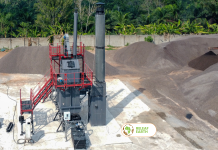Nigeria ranks low as an e-commerce nation, with average revenue per user (ARPU) going towards consumers sitting at around $44 a month, according to a report by Hootsuit.
The country lags behind South Africa’s $109, Egypt, ($96), and Ghana, ($59), as young Africans continue to leverage on the proliferation of the internet and mobile phones to make on line purchases.
The report stated that of the 44 countries it analysed, in the digital the six African countries featured all rank in the bottom 10, as European, Asian, and United States consumers have a higher disposable income as evidenced in synchronized economic growth.
In recent times, online shopping is increasingly becoming a culture in Nigeria because of its smooth transaction and delivery and discount offers that consumers do not ordinarily get from local store.
Experts say the proliferation of internet service and smartphones have help add impetus to the platform.
According to internet World Stats, Nigeria’s total internet users stood at 111.6 million as at the end of March 2019, as the country’s internet users grew the highest by 55,716 percent in the last 19 years.
The reports stated that the country now ranks 7th in terms of countries with the highest number of internet users in the world.
Nigeria currently has over 172 million mobile subscribers according to the NCC figures, adding that it may rise to over 201 million by 2025, according to a recent report by online giant, Jumia.
“There were over 5 billion unique mobile subscribers globally in 2018 adding that 60% of the connection was through smartphones. Internet users peaked at 3.6 billion; that is, almost half of the world population had mobile internet access.
It is predicted that Nigeria will contribute 4 percent of the estimated 700 million new global mobile subscribers, making it the only country in Africa marked with a significant contribution to increasing mobile penetration in the world.
By this quota, it is expected that 28 million new mobile subscribers will emerge from Nigeria between 2019 and 2025, that is, an average of 7 million new mobile subscribers annually, if the country is to meet its quota.
However, the e-commerce industry is beset with challenges such as lack of skilled workers, building online trust, retaining customers, generating targeted traffic, product delivery, and quality control.
The harsh and unpredictable macro-economic environment has deal a great blow on consumers whose purchasing power are increasingly being eroded by rising inflation.
Nigerians are getting poorer as over 50 percent of a population of 200 million live on less than $1.98 dollars a day, which means they have little in their pockets to go shopping.
According to data from Fitch solutions, household income is estimated to have grown by 8.8 percent year on year to $4,252 in 2019 from US $3,908 2018. 2019’s 8.8 percent years on year growth comes in lower than the 10 .7 percent years on year (y/y) growth in 2018.
Inflationary pressures and the hike in fuel price continue to hurt consumers’ ability to increase expenditure which in turn continues to pressure consumer companies’ revenue.
Inflation for the month of December accelerated to 11.98 percent, the highest in 7 months as the price of basic food stuffs skyrocketed on the back of border closure.
High level of unemployment at 23 .1 percent as at Sept 2018 and poor job creation continues to pressure expenditure levels. Only one out of five of a new labour force can get a job.











